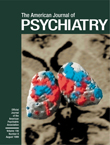Differential Effect of Number of Previous Episodes of Affective Disorder on Response to Lithium or Divalproex in Acute Mania
Abstract
OBJECTIVE: The authors investigated the relationship between number of lifetime episodes of affective disorder and the antimanic response to lithium, divalproex, or placebo. METHOD: The subjects were 154 of the 179 inpatients with acute mania who entered a 3-week parallel group, double-blind study. The primary efficacy measure was the manic syndrome score from the Schedule for Affective Disorders and Schizophrenia. The relationship between improvement and number of previous episodes was investigated by using nonlinear regression analysis. RESULTS: An apparent transition in the relationship between number of previous episodes and response to antimanic medication occurred at about 10 previous episodes. For patients who had experienced more episodes, response to lithium resembled the response to placebo but was worse than response to divalproex. For patients who had experienced fewer episodes, however, the responses to lithium and divalproex did not differ and were better than the response to placebo. This differential response pattern was not related to rapid cycling or mixed states. CONCLUSIONS: A history of many previous episodes was associated with poor response to lithium or placebo but not to divalproex.



